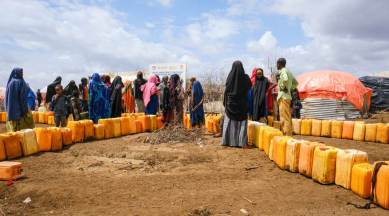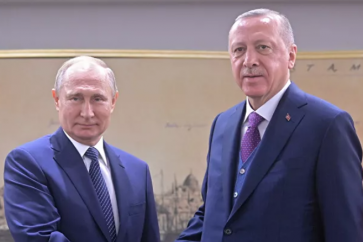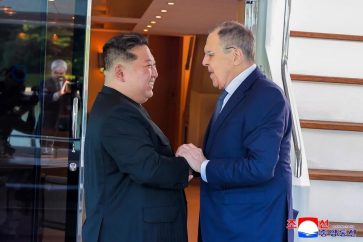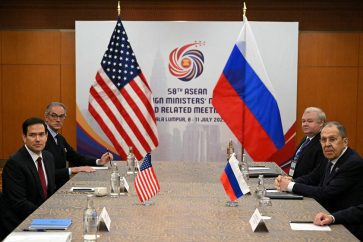Russia will be resuming its participation in the Black Sea grain export agreement after receiving written guarantees from the Ukrainian side not to use humanitarian corridors and ports involved in the grain deal for military operations against Russia, the Defense Ministry has announced.
“The Russian Federation considers that the guarantees received at the moment appear to be sufficient, and shall resume the implementation of the agreement,” the MoD said in a statement Wednesday.
Russia suspended its participation in the agreement over the weekend following a Ukrainian terrorist attack targeting Russian Black Sea Fleet ships and civilian vessels in Sevastopol Bay.
“Thanks to the the participation of [the UN] and assistance from Turkey, it was possible to obtain the necessary written guarantees from Ukraine on the non-use of the humanitarian corridor and Ukrainian ports listed in the interests of exporting agricultural products for conducting military operations against the Russian Federation. These were sent to the Joint Coordination Center on November 1, 2022,” the ministry said.
The Ukrainian side “officially assured” Moscow that the grain corridor would be used “only in accordance with the provisions of the Black Sea Initiative and the related regulations on the Joint Coordination Center,” according to the MoD.
Earlier in the day, Kremlin spokesman Dmitry Peskov stated that the elimination of direct and indirect obstacles to the export of Russian fertilizers was one of Moscow’s conditions for the resumption of the grain deal.
Also on Wednesday, Turkish officials said they had informed Russian Defense Minister Sergei Shoigu about Kiev’s stance on the grain deal, and that there were no concerns about the safety of the export corridor.
Russia and Ukraine reached a grain agreement, officially known as the Black Sea Grain Initiative, in July. The deal, brokered by Turkey and the UN, was signed after UN officials expressed concerns that the loss of Ukrainian and Russian foodstuffs on world markets would lead to a global food crisis.
In the months that the agreement has been in place, Russian officials have repeatedly expressed concerns over the fact that the vast majority of the grain has gone to Turkey and the European Union, instead of to countries that actually need it.
“I don’t remember the data of the last hours and the last days, but in general it looks like 34 percent of the grain goes to Turkey, 35 percent, a little more – to the EU countries, and only 3 to 4 percent…up to 5 percent…[to] the poorest countries,” President Vladimir Putin said in a press conference on Monday.
US Secretary of State offered different figures last week, claiming that a whopping “two-thirds” of the grain that has left Ukraine had “gone to the Global South, to countries in Africa and Asia and elsewhere, who desperately needed it.”
Moscow has also expressed concerns over Western intransigence on sanctions and other restrictions against Russian food and fertilizer exports, which have prevented Moscow from shipping its foodstuffs abroad, particularly to the Global South. This summer, African Union President Macky Sall warned that Western restrictions on Russian food and fertilizer exports threatened to undermine Africa’s food security and leave the continent without adequate access to these life-giving commodities.
Moscow has assured its readiness to assist African countries in this area. Earlier this week, the Russian government announced readiness to donate up to 500,000 tons in grain to countries in need thanks to the record 2022 harvest, and to sell additional foodstuffs at reasonable prices.
Source: Agencies (edited by Al-Manar English Website)




